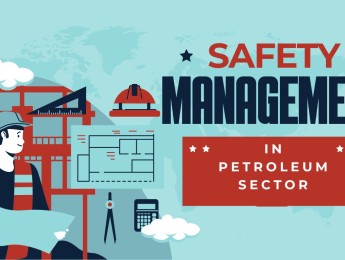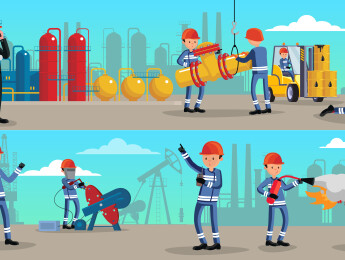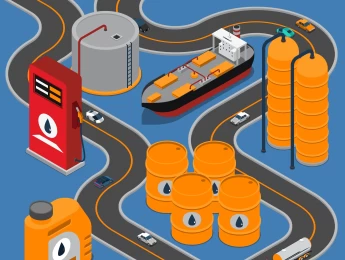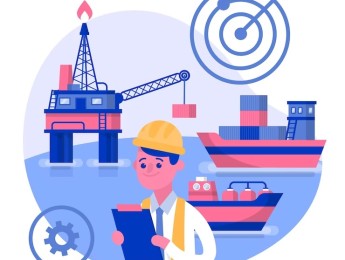As your business ages, elements of your operation and infrastructure will need to be maintained to continue trading. In the oil and gas industry, corrosion is one of the biggest risks to an organisation. Corrosion can cause damage to underground pipes, mean loss of product, and drastically reduce the amount you can charge in sales.
To prevent this and protect yourself from inevitable corrosion, Cathodic Protection (CP) is one of the most successful corrosion protectors. It eliminates metal corrosion by applying an electric current.
The techniques have been used for 160 years in the farming industry and are used to maintain offshore piping, which becomes rusty and corroded easily due to damp conditions. Despite its long history of successes, they’re still broadly unknown across the industry, meaning that gas and oil businesses leave themselves open to risks.
It’s important for business owners to understand the benefits of cathodic protection and explore an implementation plan theoretically and practically to fully understand how CP could help to develop the business, increase protection, and pull in greater profits. To appreciate the extent of the benefits, you will need to research and plan the technology and systems required to implement CP and explore any risk factors involved to avoid shutdowns and reduce your production costs overall with the minimum amount of obstruction to continued operations.
Upon completion of this course, participants will be able to:
- Understand the Cathodic Protection benefits and a theoretical implementation plan.
- Develop a practical working knowledge of how CP can help your business.
- Determine the biggest risk areas of not applying CP to your operation.
- Understand how corrosion is created and how galvanic and impressed current applications can assist.
- Explore the equipment and technology needed to implement a CP system.
- Delve into the various elements affecting the performance of a CP system.
- Monitor and report on CP productivity and quality.
- Provide regular audits on performance and aim for continuous improvement.
- Reduce the costs of corrosion on your overall operation.
This course is designed for anyone responsible for maintaining a gas and oil operation or making improvements and assessing risk areas to maintain the operation’s success. It would be most beneficial for:
- Business Owners
- Operations Managers
- Equipment Engineers
- Safety Personnel
- Supervisors
- Team Leaders
- Risk Assessors
- Technicians
- Corrosion Assessors
This course uses various adult learning techniques to aid full understanding and comprehension. Participants will watch videos and participate in interactive seminars to understand the benefits and implications of implementing Cathodic Protection in a gas and oil business.
They will work together to draft action plans for implementation and understand the biggest risk areas. They will also be presented with powerful tools and techniques to help monitor and report their CP performance to boost their profits and successes in this competitive market.
Day 5 of each course is reserved for a Q&A session, which may occur off-site. For 10-day courses, this also applies to day 10
Section 1: Why is Corrosion Control Important?
- The main causes of gas and oil plant failure.
- The economic effects on your business.
- Understanding how your plant affects the environment.
- Safety considerations.
- The types of corrosion management.
- The cost of corrosion.
Section 2: Corrosion Causes
- How does corrosion occur?
- Metallurgical factors and forms of corrosion.
- Control mechanisms.
- Material selection and cost-benefit assessment.
- Environmental changes.
- Understanding protective coatings.
Section 3: The Basics of Cathodic Protection Systems & Materials
- The atmosphere’s effect on corrosion.
- Marine and industrial environments.
- Underground corrosion.
- Concrete structures and carbon steels.
- Building with metal.
- Cast iron, stainless steel, copper, nickel, and aluminium.
Section 4: CP Coatings & Systems
- Why is the protective coating essential?
- Coating options and selection criteria.
- Coating efficiency and potential defects.
- Overvoltage.
- Cathodic disbondment.
Section 5: System Design
- Important design factors.
- Electrolyte resistivity and pH surveys.
- Structure surveyance.
- Your current requirement and protective currents.
- Developing a sacrificial anode.
- Soil resistivity and current requirement testing.
Section 6: Corrosion Management Systems
- Oilfield protection systems and implementation.
- Looking at the corrosion economy.
- KPIs for corrosion reporting.
- Decide on a success matrix.
- Asset integrity and corrosion management styles.
- Understanding your data to create continuous improvement.
- Disaster recovery and contingency planning.
Upon successful completion of this training course, delegates will be awarded a Holistique Training Certificate of Completion. For those who attend and complete the online training course, a Holistique Training e-Certificate will be provided.
Holistique Training Certificates are accredited by the British Assessment Council (BAC) and The CPD Certification Service (CPD), and are certified under ISO 9001, ISO 21001, and ISO 29993 standards.
CPD credits for this course are granted by our Certificates and will be reflected on the Holistique Training Certificate of Completion. In accordance with the standards of The CPD Certification Service, one CPD credit is awarded per hour of course attendance. A maximum of 50 CPD credits can be claimed for any single course we currently offer.
- Course Code IND01-130
- Course Format Classroom, Online,
- Duration 5 days













